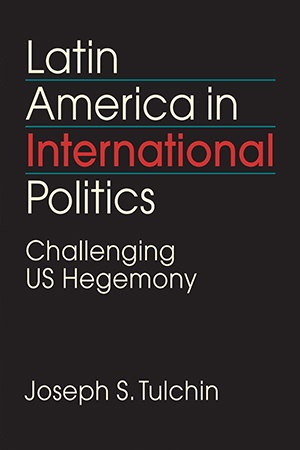Joseph S. Tulchin
In recent years, the countries of Latin America have moved out from under the shadow of the United States to become active players in the international system. What changed? Why? And why did it take so long for that change to happen? To answer those questions, Joseph S. Tulchin explores the evolving role of Latin American states in world affairs from the early days of independence to the present.
Joseph S. Tulchin was former director of the Latin American Program at the Woodrow Wilson International Center for Scholars.
"This is an excellent book, well worth reading by those, whether policy-maker, scholar or student, serious about understanding foreign policy in the western hemisphere." —Sean W. Burges, International Affairs
"Tulchin's Latin America in International Politics is a must-read for those interested in Latin American history, international relations, and comparative politics."—José de Arimatéia de Cruz, Latin American Politics and Society
"Required reading.... An important contribution to the literature on Latin America's changing role in world politics.... Tulchin provides a powerful narrative that is based on careful historical research, well written, and replete with historical vignettes that demonstrate attempts at Latin American agency.... Ideal for an upper-division undergraduate course on Latin American politics and inter-American affairs."—Thomas J. Nisley, International Studies Review
"An erudite, nuanced and sweeping view of the evolution of Latin American foreign policies in the context of U.S. power from independence to the present."—Christopher Sabatini, ReVista
"Tulchin illuminates how Latin American states came to understand their place in the international system, define their foreign policy interests, and pursue them in the context of US hegemony and decline.... He offers a useful balance to conventional US-centric work on inter-American relations."—Mark Williams, Middlebury College








